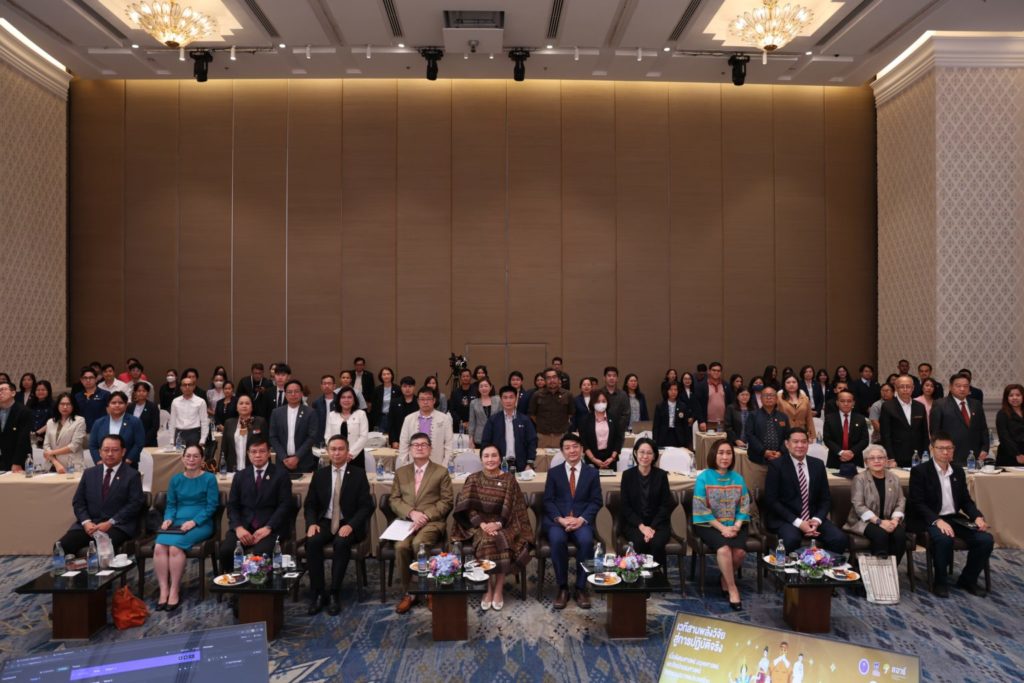On 8 July 2025, NXPO, in collaboration with the Thailand Science Research Innovation (TSRI), organized a forum on social sciences, humanities, and arts (SHA) at Pullman Bangkok King Power Hotel. The event aimed to present policies and plans for advancing SHA research under the Science, Research, and Innovation (SRI) Fund, while fostering dialogue and collaboration among researchers, policymakers, and practitioners to help translate research into real-world application.
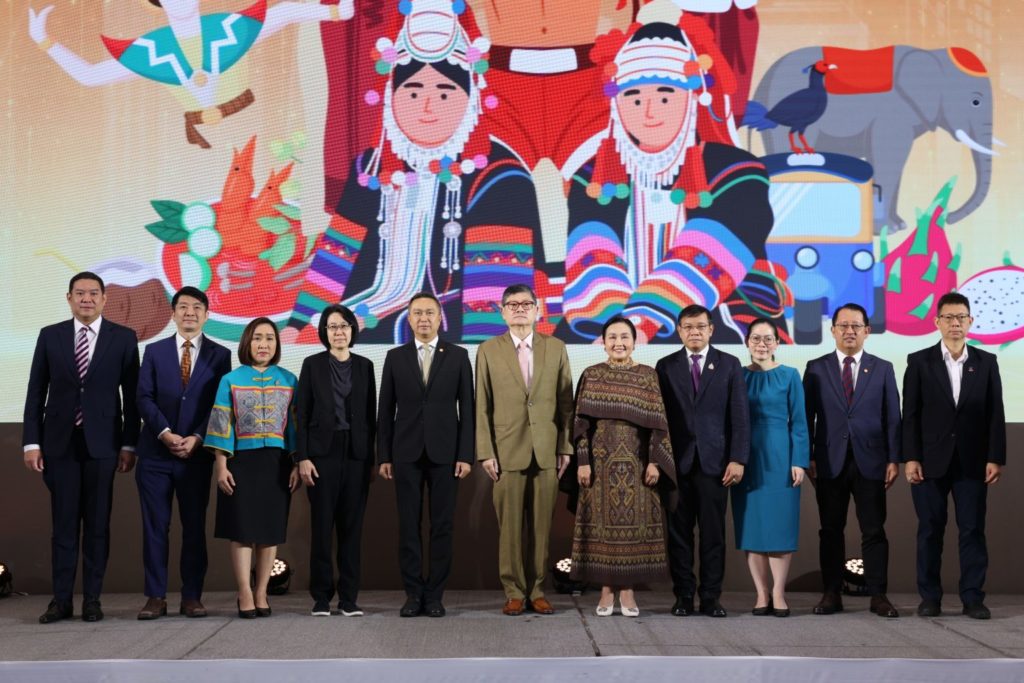
In his welcome remarks, Assoc. Prof. Dr. Apisak Dhiravisit, Vice President of NXPO, noted that the government has increasingly recognized the importance of SHA policy in recent years, particularly through initiatives promoting the creative economy. The Ministry of Higher Education, Science, Research and Innovation (MHESI) has actively supported this agenda by establishing the Thailand Academy of Social Sciences, Humanities, and Arts (TASSHA) — envisioned as a national platform to elevate SHA as a key driver of national development.
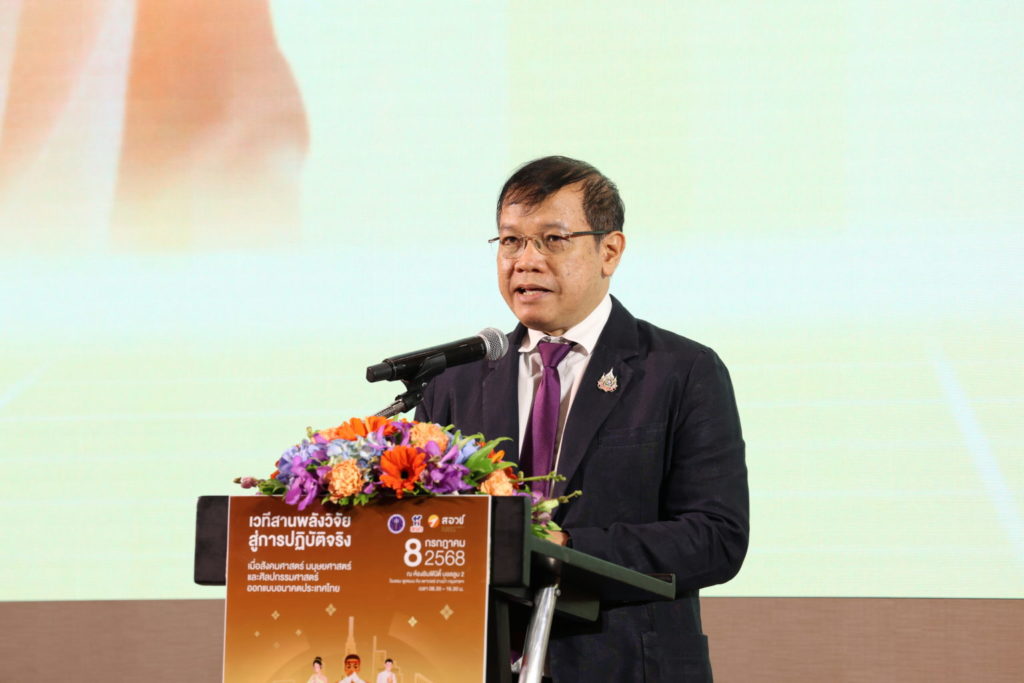
“This forum highlights SHA policy priorities, emerging trends, and their connection to the national SRI plan. It serves as a platform for stakeholders to shape the future of SHA research and contribute to building a more inclusive, resilient, and sustainable Thai society,” said Dr. Apisak.
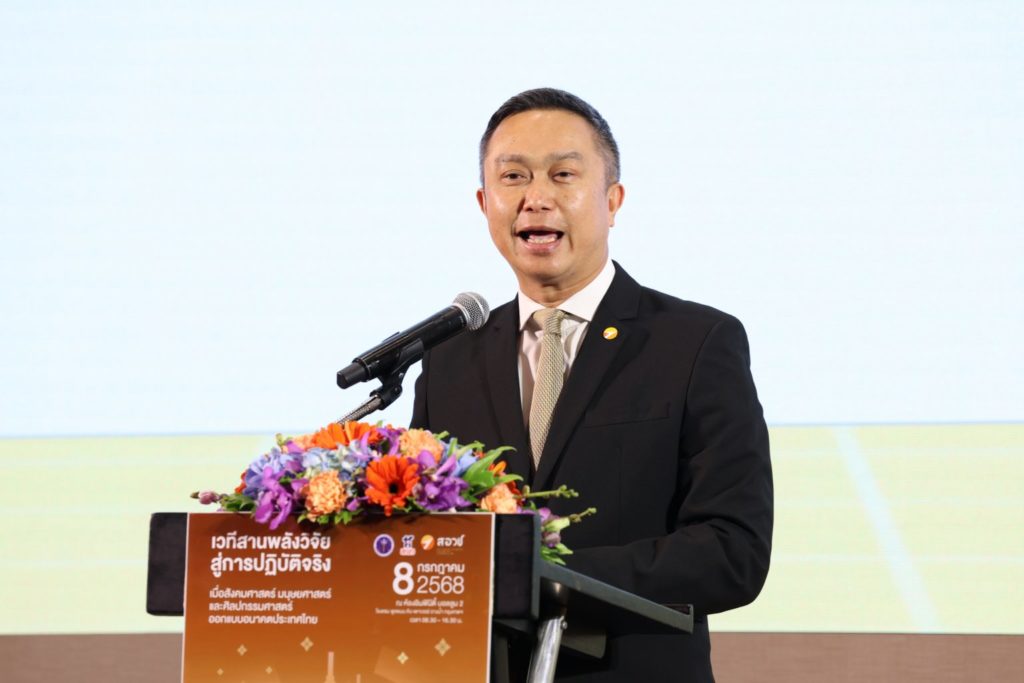
Delivering a presentation on “Policies and Mechanisms for Advancing Social Sciences, Humanities, and Arts,” Dr. Surachai Sathitkunarat, President of NXPO, emphasized that insights gathered from this forum would inform revisions to the current National SRI Plan (2023–2027) and help shape its next phase, set to launch in 2028. Alongside this policy work, NXPO continues to focus on developing Thailand’s high-skill workforce, particularly in higher education. While workforce strategies often prioritize STEM fields, Dr. Surachai stressed the importance of integrating STEM with SHA expertise — especially on areas such as artificial intelligence (AI), where technological innovation must be guided by ethical, cultural, and societal considerations.
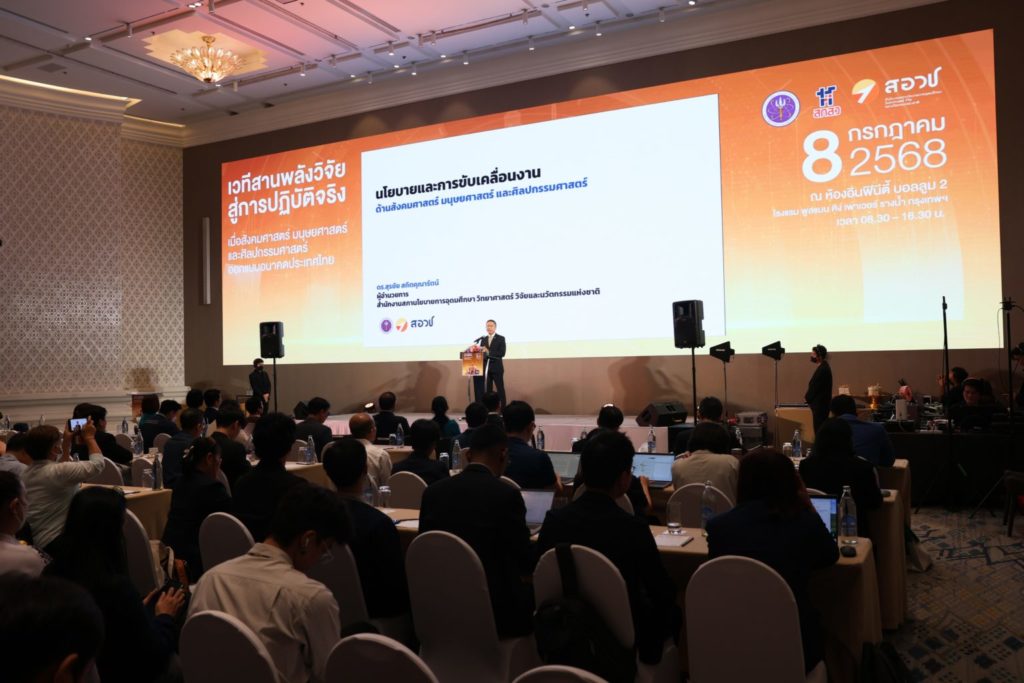
He further noted that SHA perspectives have been incorporated into several initiatives addressing social mobility challenges. Social sciences, for example, provide tools for analyzing structural issues and developing inclusive public policies. Humanities help understand cultural values, beliefs, and social barriers affecting upward mobility, while the arts play a key role in developing life and career skills for diverse communities.
“The core objective of this forum is to gather insights and policy recommendations from participants, transforming them into actionable proposals that will shape future SRI and higher education policy frameworks. It will also help guide the development of future funding strategies through national funding agencies,” Dr. Surachai concluded.
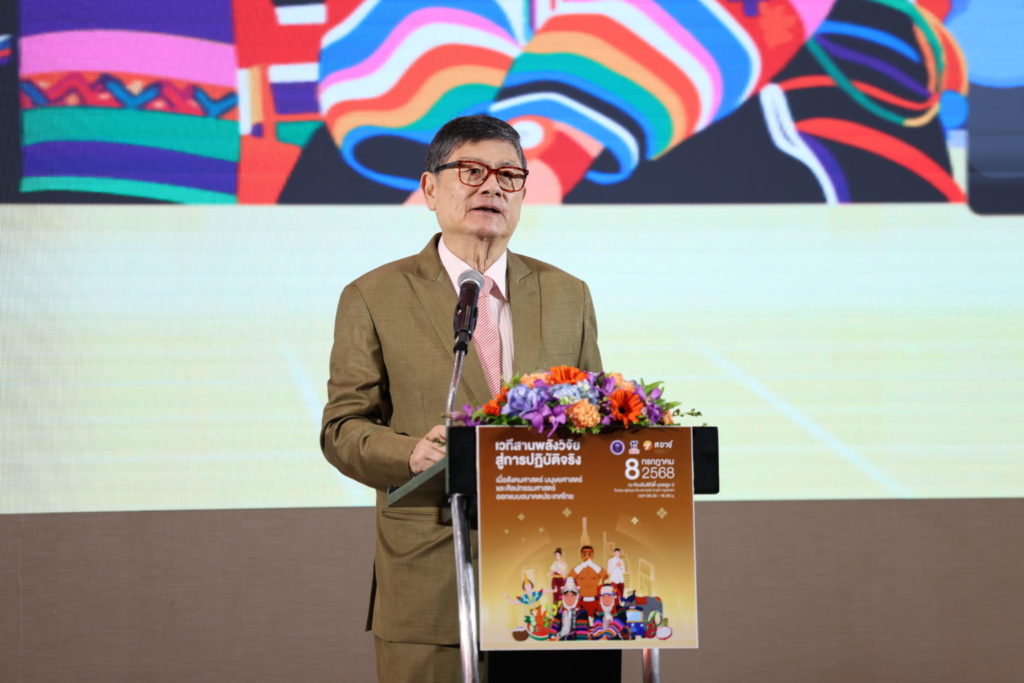
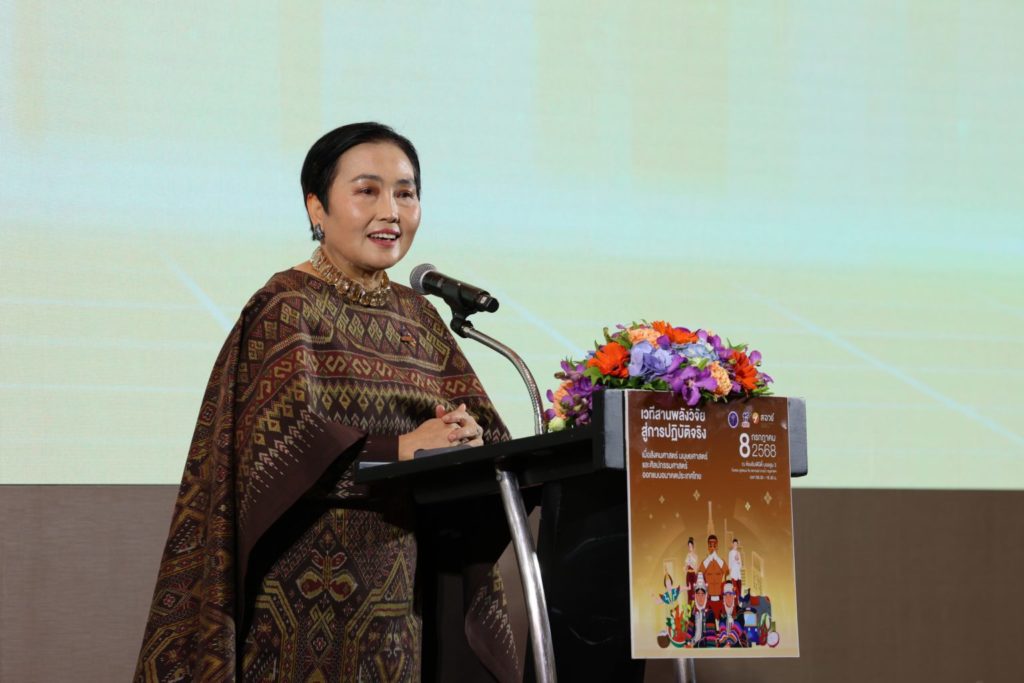
The event also featured a presentation on Strategy 2 of the SRI Plan by Prof. Dr. Sompong Klainongsuang, President of TSRI, and a keynote address titled “Social Sciences and Humanities for Advancing Thailand toward Developed Country Status” by Prof. Dr. Anek Laothamatas, former MHESI Minister.
To further gather input, brainstorming sessions were held, divided into six breakout groups:
- Group 1: Social Sciences, Sociology, Anthropology, and Behavioral Sciences
- Group 2: Law, Political Science, and Public Administration
- Group 3: Education
- Group 4: Humanities, Philosophy, Religion, History, and Archaeology
- Group 5: Communication Arts and Mass Communication
- Group 6: Fine Arts, Painting, and Sculpture
